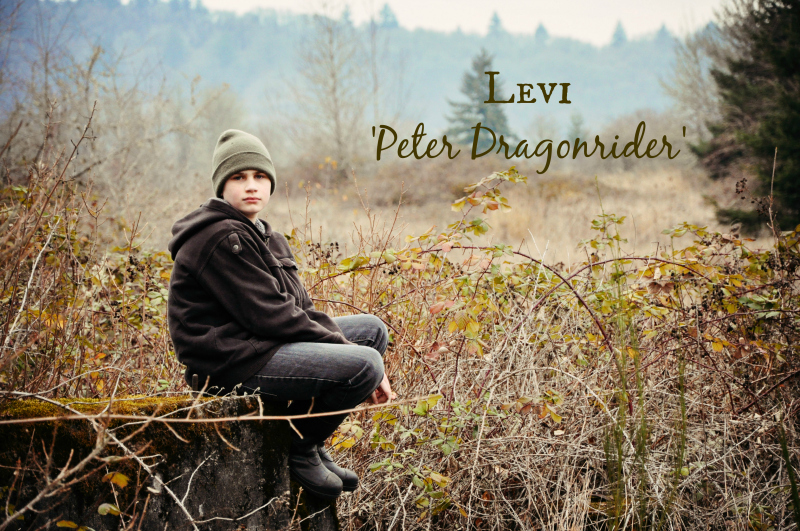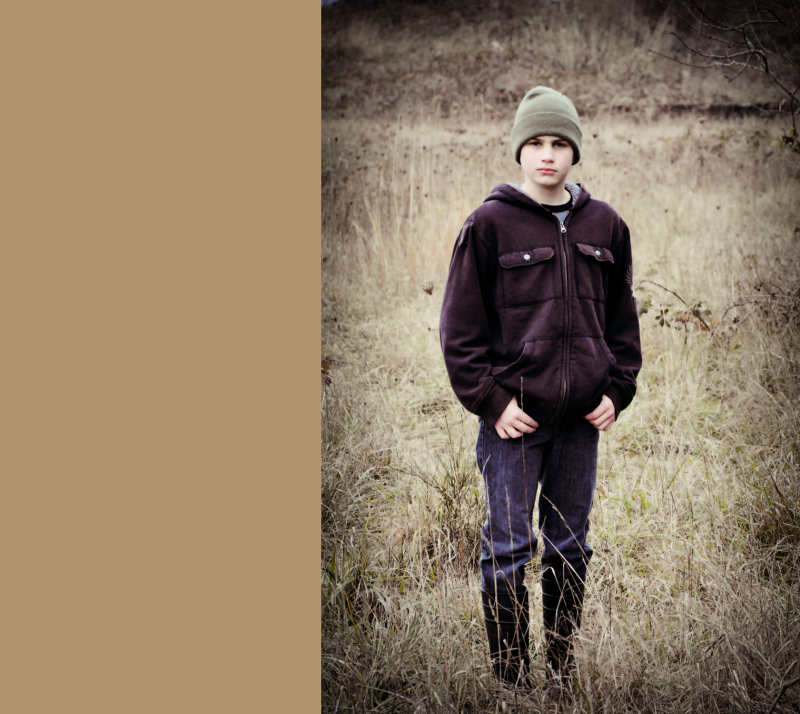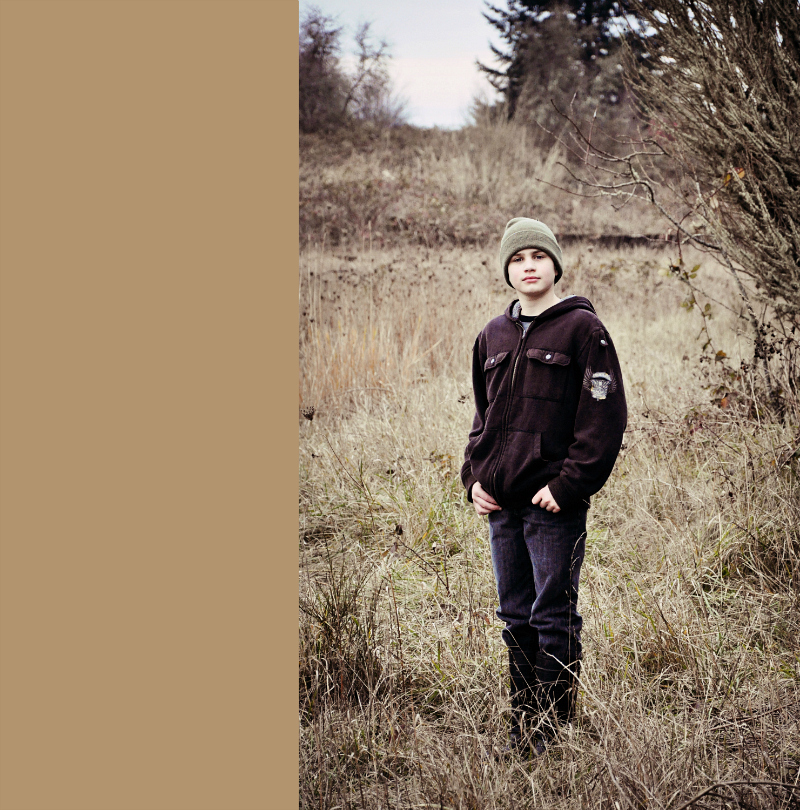
As my boys get older, I feel the increasing need to respect their ‘personhood’ online as well as protect their privacy. For those reasons, you may see a little less of Levi in this space. I’d love to share more about him (as I did Luke), but maybe that wouldn’t be entirely appropriate. Instead, I’m going to quote (extensively) my favorite Myers-Briggs personality/parenting book, Nurture by Nature: Understand Your Child's Personality Type - And Become a Better Parent. Not all kids have distinct personalities at a young age (at least not distinguishable MB types), but Levi, well, there’s never been a doubt in my mind that he is an ENFP. No doubt.
ENFP
Extraverted, Intuitive, Feeling, Perceiving
“A Great Idea? I’ve Got a Million of ‘Em!”
“They need to mention each and every new impression they have or interesting thing they notice. Because they tend to think out loud, they frequently speak spontaneously or spout ideas they haven’t considered for even a second before expressing them.
“They are friendly and warm people, eager to meet new friends, and love the surprise of seeing people they weren’t expecting to see.
“They seem to be ever able to see possibilities others may not, and they aren’t easily discouraged from finding a way out of a dilemma. They need to bounce their ideas off other people and are very frustrated by people who either don’t take time to listen or stifle their enthusiasm with endless objections or criticism. They generally have vivid imaginations and love dramatic play, getting very involved in their role with accompanying costumes, props, and staging.

“ENFPs are usually sensitive, gentle, and kind. They take criticism personally and have deep affection for the people and causes they love. They have strong beliefs about the right way to treat others and often favor the underdog or befriend the social outcast. They may prefer to play with younger children or to interact with adults rather than their peers.
“When upset, they can act irrationally and have the tendency to become depressed and moody when they are overwhelmed with details or projects to finish.
“ENFPs are innately very curious, eager to understand why things are as they are. So they tend ask lots of questions and to push limits and conventions.
“Since they value the process well ahead of the product, they are easily distracted and don’t naturally have a strong sense of time. They value harmony in their relationships but place the highest importance on their own individuality, which they strive to express in everything they do.
“The key to understanding and appreciating ENFPs of any age is to remember that they are ruled by their highly developed sense of what is possible… Above all else, they think of themselves as idea people, but they are also deeply sensitive and need their feelings and values to be honored and understood.
“Because ENFPs rarely accept anything at face value and because they have such a remarkable ability to see alternatives, they naturally question most limits and rule.
“ENFPs think out loud and do not censor or edit their thoughts. They actually need to hear what they’ve said before they can apply any judgment to it.
“Because ENFPs are so energized by interacting with other people, they often become so wound up that they lose control of themselves. Their eagerness makes them attentive, engaging, and interesting children to be around, and they are often funny and entertaining as well.
“ENFPs are so good at bending rules that if there is any ambiguity in your message, they will find a way of continuing the action, but with a slight variation that wasn’t expressly prohibited. In general, the more you correct and limit, the less they pay attention.
“Life can be chaotic with an ENFP. They seem to create messes everywhere…Cleanup is almost always a battle. Mess represents activity and possibility to ENFPs, so they can live happily amid more disorder than most parents are comfortable with.
“ENFPs are strongly individualistic children. They sometimes have trouble striking a balance between their need for social acceptance and their desire to express themselves in original ways.

“ENFPs are happiest in a very casual and relaxed environment, where there are a minimum of rules and limitations. They like to keep all their options open as long as possible to be able to explore every alternative.
“Focus and concentration do not come easily to most ENFPs. It takes great effort to stay on task… The playful spirit of ENFPs is delightful and refreshing. But they also tend to lack self-discipline and often wait until the last possible moment to begin working on assignments and chores.
“They are easily embarrassed when their privacy is violated, and since they tend to perceive insensitivity as intentional meanness, they can wind up feeling emotionally abandoned when criticized. So gentle and positive are the important watchwords when guiding ENFPs.
“They may seem to get their feelings hurt “at the drop of a hat” and withdraw into their rooms to sulk or rage. Both boy and girl ENFPs tend to cry easily.
“Whereas the public ENFP is active, entertaining, clever, and playful, the private one can be worried, fearful, and morose. Accepting both sides of their personality is essential to fully understanding them. Accepting the child’s feelings as valid, no matter how odd or irrational they may seem, is critical. ENFPs often suffer self-blame and may express doubts about their worthiness or their ability to handle the tough stuff. With constant (even if it seems excessive) reassurance, self-doubting ENFPs will learn to comfort themselves…
“Because ENFPs, more so than many other types, are such individuals, they often become less conventional as they grow older. They like the whole mystique of being different…They feel a strong and unrelenting pull to figure out what makes them special, and they pursue a quest to understand themselves and the meaning of life.
“Many teen ENFPs like to cause a stir and get a reaction; they find shocking adults is fun and exciting. They usually respond best to being treated like adults, being invited into adult conversations, and having their views considered. But their natural ability to read between the lines may result in some heated discussion of necessary limits, or constant renegotiating of rules. They are almost incapable of accepting that there is no possibility of getting you to change your mind…
“Allow them to fantasize without accusing them of lying.
“When we parents can have the courage to turn our backs a bit on society’s conventions and instead stand by our ENFPs—in all their occasional quirkiness—we send a loud and clear message of unconditional love that lasts a lifetime.”


2 comments:
Heidi, I know what you mean about not being able to say much in a public form as our kids age. Ian now reads my blog very frequently, so I have to be careful about what I say, not only about him but about other things as well. (I always knew this day would come, so I've always tried to be respectful, but still … the days of being tempted to vent or just kind of share the way one would among girlfriends are over!) It's ironic, isn't it, because this happens just as we are entering a whole new phase of parenting and so needing to reach out and share the challenges (and joys) and even ask for advice. I guess that's what real-life friends are for. :-)
For the record, I so enjoyed meeting Levi and getting to know a bit more of his very distinctive personality!
Post a Comment